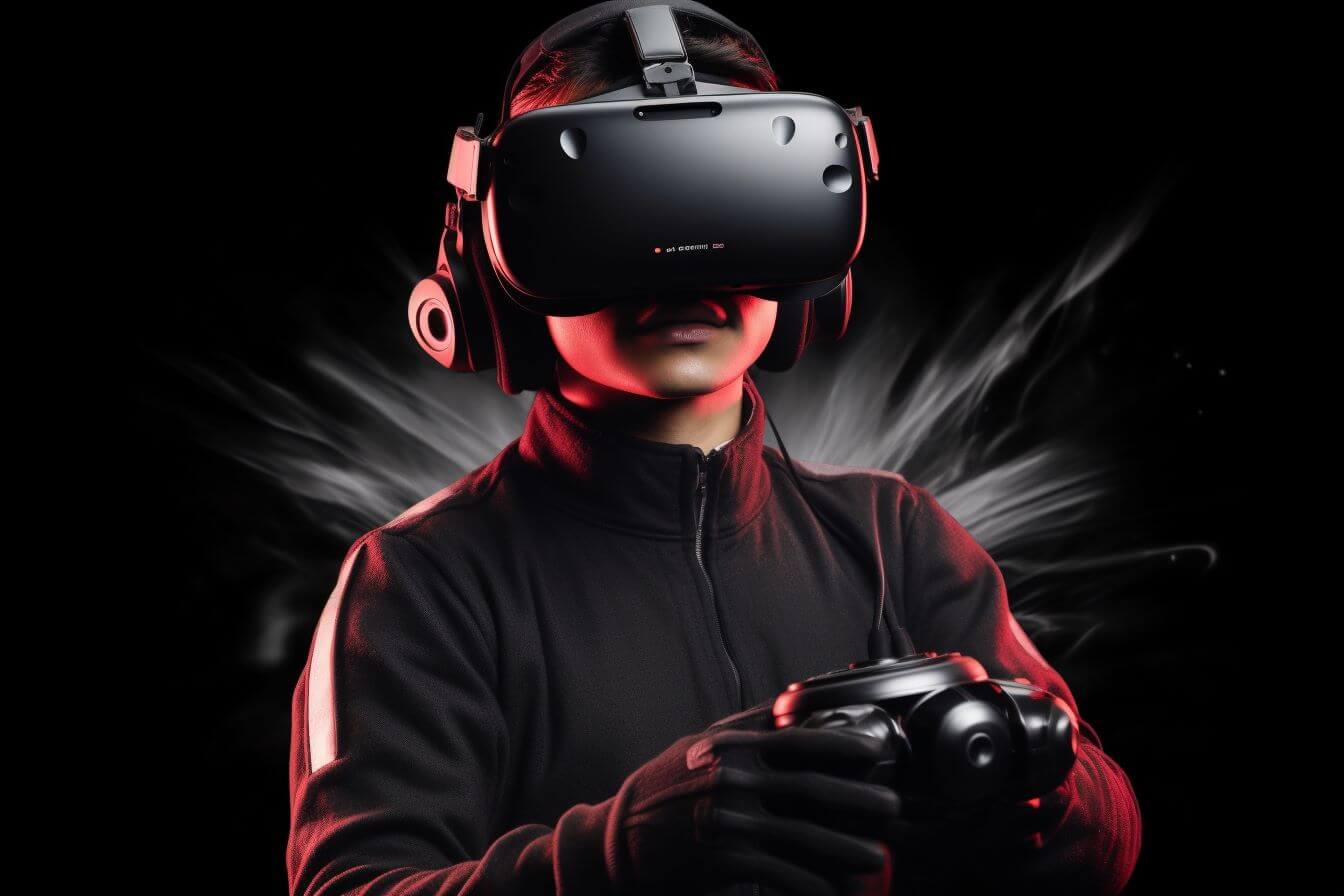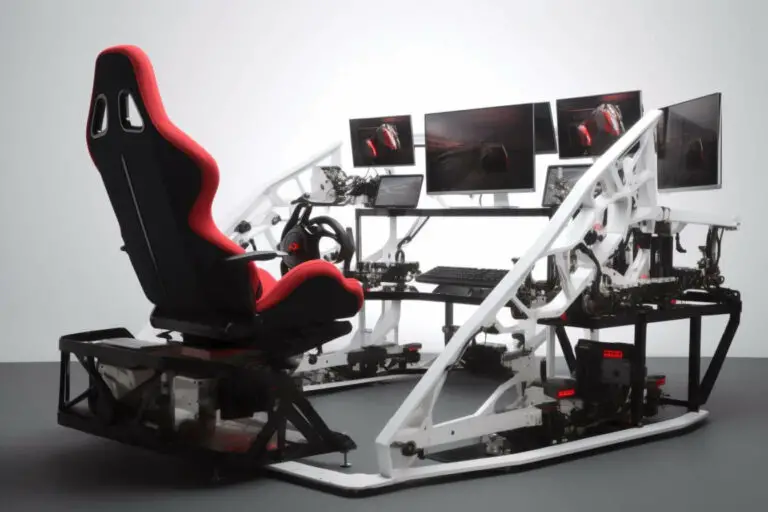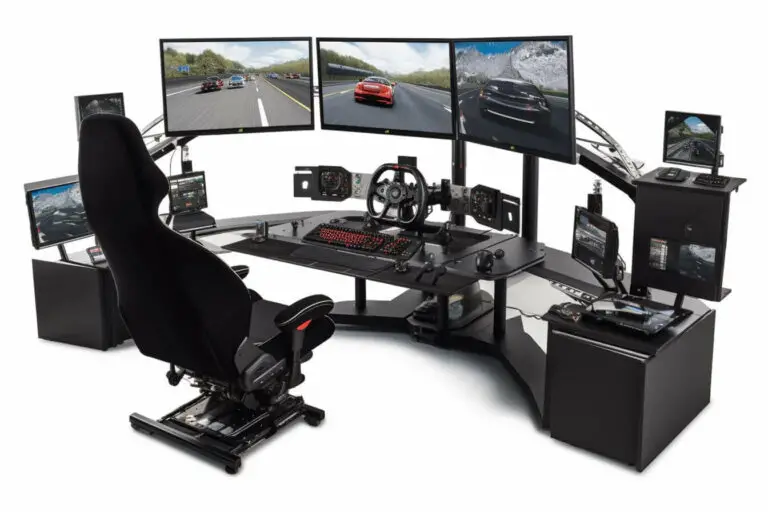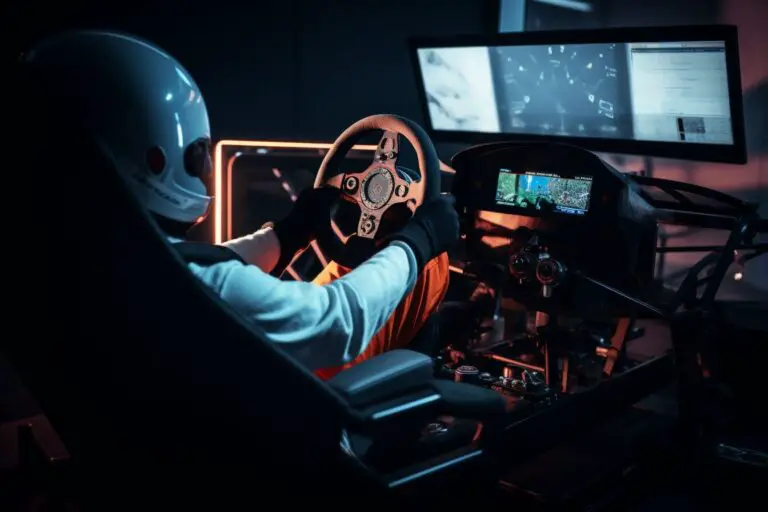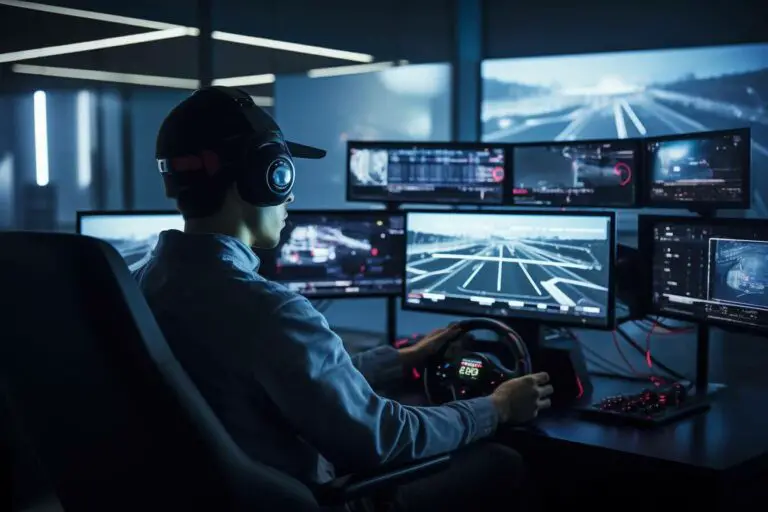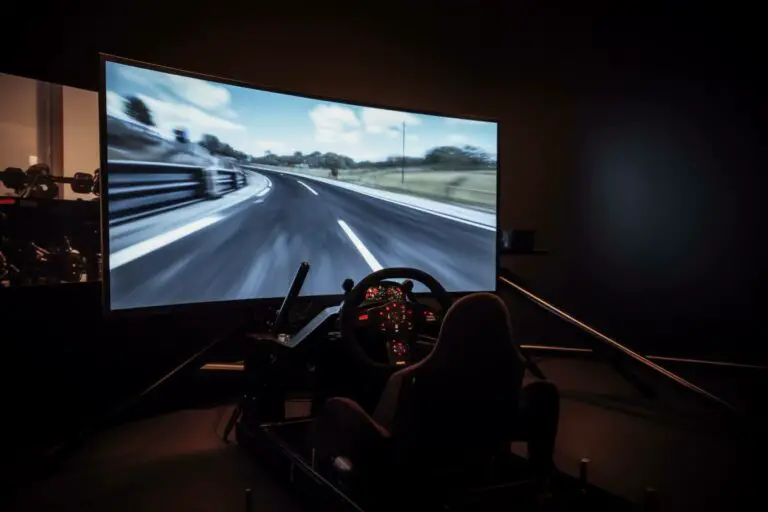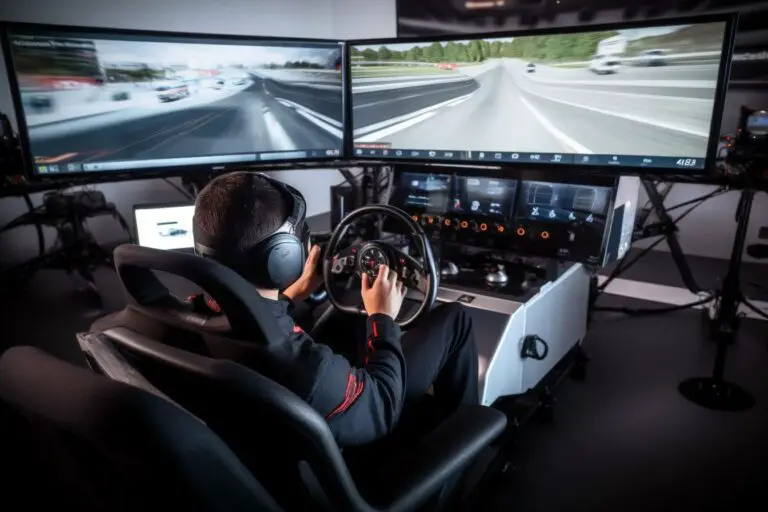Uncover The Mental Strategies To Stay Focused And Improve Your Sim Racing Skills
- Uncover The Mental Strategies To Stay Focused And Improve Your Sim Racing Skills
- Developing A Pre-Race Routine
- Visualization Techniques For Success
- Coping With Pressure And Stress
- Consistent Practice And Goal Setting
- Strengthening Concentration And Focus
- Learning From Mistakes And Feedback
- Embracing A Growth Mindset
- Frequently Asked Questions
- How Can I Maintain Motivation And Avoid Burnout During Long Sim Racing Sessions?
- What Are Some Effective Techniques For Managing Frustration And Maintaining A Positive Attitude During Races?
- How Can I Balance The Time And Energy Spent On Sim Racing With Other Aspects Of My Life, Such As Work, Relationships, And Personal Well-Being?
- Are There Specific Mental Exercises Or Resources That Can Help Improve My Situational Awareness And Decision-Making During Races?
- How Can I Effectively Measure My Progress And Improvement In Sim Racing To Ensure That My Mental Strategies Are Producing The Desired Results?
- Conclusion
Are you struggling to stay focused during your sim racing sessions? Do you find it challenging to maintain consistency and improve your lap times? You’re not alone. Many sim racers face the same issues, but don’t worry – there are mental strategies that can help boost your performance and take your skills to the next level.
In this article, we’ll uncover some of these proven techniques that professionals use, so you too can benefit from them. Whether you’re a seasoned racer or just starting out, implementing these mental strategies will lead to increased focus, better decision-making on the track, and ultimately faster lap times.
So buckle up and let’s dive into the world of sim racing psychology!
Other Interesting Articles to improve your Sim Racing Techniques
How To Improve Your Sim Racing Lap Times: Shave Seconds Off Your Lap Time
What Are the Top Techniques to Master Corners in Sim Racing?
How Can I Optimize My Car Setup for Faster Lap Times in Sim Racing?
Discover the Insider Tips for Smoother Braking and Acceleration in Sim Racing
Which Driving Aids Can Help You Become a Faster Sim Racer?
How to Consistently Hit the Perfect Racing Line for Ultimate Speed
What Can You Learn from Pro Sim Racers to Boost Your Performance?
How to Analyze Telemetry Data to Unlock Your Full Sim Racing Potential
How to Train Your Way to Sim Racing Greatness: Tips, Tricks, and Techniques
Developing A Pre-Race Routine
Imagine you’re an elite athlete preparing for a crucial match. The arena is buzzing with anticipation, and the pressure to perform is immense. But instead of giving in to nerves, you take a deep breath, put on your headphones, and clear your mind as you focus on executing each move perfectly. This mental preparation is just as critical for sim racers looking to hone their skills.
Developing a pre-race routine can significantly impact your ability to stay focused and maintain consistency during races. Start by establishing a dedicated space where you can practice without distractions. Make sure this area is comfortable and equipped with everything needed for optimal performance – from ergonomic seating to high-quality hardware that can withstand hours of use.
Familiarize yourself with the controls, settings, and car configurations so that when it’s time to race, there are no surprises or last-minute adjustments required. A significant component of any pre-race routine involves setting realistic goals for each session based on past performances or areas identified as needing improvement. By keeping track of progress over time using data analysis tools such as lap times and telemetry information, drivers will be better able to identify trends and make necessary changes proactively.
Additionally, practicing mindfulness techniques like meditation or visualization exercises before jumping into the virtual cockpit may help reduce anxiety levels while promoting overall mental clarity – ensuring that when the green flag drops, all thoughts are focused solely on achieving success out on the track.
Visualization Techniques For Success
One powerful mental strategy to improve your sim racing skills is the use of visualization techniques. This involves mentally picturing yourself performing well in races, as well as visualizing specific scenarios and how you would react to them. By regularly practicing these mental exercises, you can train your brain to better prepare for and anticipate challenges on the race track.
To begin incorporating visualization into your training routine, set aside some time each day to focus solely on this exercise. Find a quiet space where you won’t be disturbed, close your eyes, and picture yourself racing on various tracks against different opponents.
Imagine every detail of the experience – from the feeling of gripping the steering wheel to hearing the roar of the engines around you. As you visualize each scenario, consider what strategies or tactics you will employ to ensure success. The more vividly you imagine these experiences, the stronger neural connections will form in your brain related to sim racing performance.
Implementing visualization techniques consistently can lead to significant improvements in both concentration and overall performance while sim racing. By mentally preparing yourself for challenging situations that may arise during a race, it becomes easier to stay focused when those moments occur in reality.
Furthermore, visualization has been proven effective across numerous disciplines not limited to sports; thus demonstrating its potential impact on helping anyone excel at their chosen pursuit – including sim racers like yourself. Remember that practice makes perfect: dedicate ample time towards honing this skillset alongside other physical practices such as seat-time experience with actual simulators so that growth remains balanced throughout all aspects necessary for achieving true mastery within virtual motorsports competition arenas!
Coping With Pressure And Stress
I’m sure many of us experience stress and pressure when we’re sim racing, so it’s important to identify the stressors and find ways to cope.
We can start by identifying what’s causing us to feel pressure and come up with strategies to handle it.
Then, we can look into relaxation techniques such as deep breathing and meditation, which can help us stay focused on our race.
Finally, we can look at how we can use visualization and positive self-talk to improve our performance and boost our confidence.
Identifying Stressors
It’s important to recognize that stressors can greatly impact your ability to focus and perform well in sim racing. Identifying these stress factors is the first step towards managing them effectively, so you’re able to maintain optimal performance under pressure. These stressors can be both external, such as distractions or technical issues with equipment, and internal, like self-doubt or anxiety about performing poorly.
One way to identify stressors is by reflecting on past experiences when you felt particularly stressed during a race. Consider moments where you’ve lost focus or made errors due to feeling overwhelmed or anxious. You might find certain patterns emerging – maybe it’s always just before an important competition, or perhaps it occurs when you haven’t had enough practice time beforehand.
By pinpointing these specific triggers, you’ll be better equipped to address them head-on and minimize their impact on your performance.
Another effective method for identifying stressors is through regular self-assessment of how you’re handling various aspects of sim racing. Checking in with yourself while practicing can help reveal areas where additional attention may be needed – whether that’s improving concentration techniques, working on relaxation strategies, or refining your mental approach to challenging situations.
This ongoing process will allow you to continually refine your coping mechanisms and ultimately build resilience against the pressures inherent in competitive sim racing environments.
Relaxation Techniques
As you become more aware of the stressors affecting your sim racing performance, it’s essential to develop effective relaxation techniques to help manage and alleviate this pressure. Learning how to relax both physically and mentally can significantly improve focus, concentration, and overall enjoyment while participating in competitive environments. Incorporating these strategies into your training regime will not only enhance your ability to cope with stress but also contribute positively to your racing results.
There are numerous relaxation techniques available that cater to various preferences and needs, such as:
- deep breathing exercises
- progressive muscle relaxation
- visualization
- mindfulness meditation
Experimenting with different methods will allow you to discover which ones work best for you personally – remember that there is no one-size-fits-all solution when it comes to managing stress effectively. It may take some time and patience before finding the most suitable approach for yourself; however, investing in this process will undoubtedly pay off when faced with high-pressure situations on the track.
Integrating relaxation practices into your daily routine can lead to long-lasting benefits beyond just improved sim racing performance. As you become adept at recognizing stressors and employing appropriate coping mechanisms, you’ll likely experience a positive impact on other aspects of life too – from better sleep quality and reduced anxiety levels to enhanced emotional resilience in challenging circumstances.
So why wait? Start exploring various relaxation techniques today and unlock the potential rewards they offer both on- and off-track!
Consistent Practice And Goal Setting
One of the most important mental strategies for improving your sim racing skills is to engage in consistent practice. This means setting aside dedicated time each day or week to work on specific aspects of your technique, such as braking, cornering, or throttle control. By doing this regularly, you’ll not only build muscle memory but also train your brain to focus more effectively when it comes to those crucial moments during a race. It’s essential to avoid sporadic practice sessions; instead, develop a routine that allows you to steadily progress over time.
Goal setting is another critical component in maintaining focus and enhancing your sim racing abilities. Establishing clear objectives provides direction and motivation while enabling you to measure progress accurately. When developing goals, ensure they are realistic and attainable so that you can maintain enthusiasm throughout the process. Break down larger aims into smaller milestones – this will make them feel less daunting and provide opportunities for regular celebration as you achieve each one.
A powerful way to keep yourself accountable with both consistent practice and goal setting is by tracking your performance. Keep a journal or use an app where you can record information about each session – what you practiced, how long it lasted, any breakthroughs made or challenges faced – along with updates on goal progression. This data offers invaluable insights into patterns or areas requiring improvement and serves as a reminder of just how far you’ve come since beginning your sim racing journey.
Tracking progress fosters confidence in your ability while emphasizing the importance of staying focused on continued growth and skill development within the virtual world of motorsports.
Strengthening Concentration And Focus
As the old saying goes, practice makes perfect. While consistent practice and goal setting are essential for improving your sim racing skills, it’s equally important to work on strengthening concentration and focus. Without a sharp mind, even hours of practice can go down the drain if you’re unable to fully concentrate during races.
Developing laser-like focus requires training both your mind and body. One way to train your brain is by practicing mindfulness techniques such as meditation or deep breathing exercises. Taking just 10-15 minutes each day to sit quietly and focus on your breath can significantly improve your ability to stay in the moment while racing.
Mindfulness helps reduce stress levels which can be detrimental to performance, allowing you to remain calm under pressure and make better decisions during the race.
Another crucial aspect of maintaining concentration throughout a race is managing physical fatigue or discomfort that may arise from long periods of intense gameplay. Proper posture and ergonomic equipment are vital for avoiding issues like back pain or wrist strain, so invest in a comfortable gaming chair with adequate support and an adjustable wheel stand that suits your height and reach preferences.
Additionally, taking regular breaks every hour or two will help prevent eye strain and mental exhaustion – stepping away from the screen momentarily allows your brain time to reset before diving back into the action refreshed and recharged.
Remember, honing your sim racing skills is not solely about spending endless hours behind the wheel; it’s also about mastering control over your own state of mind during those high-pressure moments on track.
Learning From Mistakes And Feedback
- Criticism can be hard to accept, but it’s important to remember that it can be a helpful tool when learning.
- Taking the time to analyze mistakes can help you identify areas of improvement.
- Looking at your performance objectively and without judgement can help you better understand what you need to focus on.
- Applying changes based on feedback and mistakes can be tricky, but it’s essential to move forward and improve.
- It’s important to stay focused on the task at hand and not let any criticism or mistakes get you down.
- With practice and an open mind, you can use mistakes and feedback to hone your sim racing skills.
Accepting Criticism
You’ve just finished a race, and it didn’t go as well as you’d hoped. You’re feeling frustrated with yourself, knowing that you could have performed better if only you’d remained focused throughout the race.
Despite your disappointment, this is an excellent opportunity to learn from your mistakes by accepting criticism from those around you. Listening carefully to feedback from other racers or even spectators can drastically help improve your sim racing skills.
It’s important to remember that everyone has their own unique perspective, which means they might see things that you don’t notice during the heat of competition. Be open-minded when receiving critiques and try not to take them personally; instead, consider each piece of advice as a chance for growth in your abilities.
One key aspect of accepting criticism is being able to distinguish between constructive suggestions and negative comments meant merely to bring you down. While it’s crucial to stay confident in your skills, remember that there’s always room for improvement – even professional drivers are continuously learning and evolving their techniques on the track.
By embracing outside perspectives and using them as fuel for self-improvement, you’ll find yourself becoming more focused and strategic behind the wheel.
Analyzing Mistakes
As you begin to accept criticism and feedback from others, it’s essential to also take the time to analyze your mistakes in order to grow as a sim racer.
Reflecting on your performance can help identify areas where you might have lost focus or made errors during the race. By pinpointing these specific moments, you’ll be better equipped to understand what went wrong and develop strategies for overcoming those challenges in future competitions.
When analyzing your mistakes, consider factors such as your racing line, braking points, gear changes, and overall speed through each corner of the track.
Start by watching replays of the race from both your perspective and that of other racers if possible – this will provide valuable insights into how different drivers approached certain situations compared to yourself.
Take note of any patterns or recurring issues that arise throughout multiple races; addressing these common problems could lead to significant improvements in your performances moving forward.
By actively engaging with constructive criticism while simultaneously reflecting on your own actions, you’ll foster a growth mindset that promotes constant learning and adaptation within the world of sim racing.
This approach not only helps improve technical skills but also builds mental resilience – giving you an edge over competitors who may struggle with handling setbacks or maintaining focus under pressure.
So embrace the process and remember: every mistake is simply another opportunity for progress.
Applying Changes
Having identified areas for improvement through feedback and self-reflection, the next step is to apply changes strategically in order to enhance your performance.
A key aspect of this process involves setting specific goals related to addressing those mistakes or weaknesses you’ve uncovered. By breaking down these objectives into actionable steps, you’ll be better positioned to monitor your progress and make adjustments as needed.
Incorporating new techniques or approaches may initially feel uncomfortable, but it’s important not to shy away from this discomfort; instead, embrace the challenge and trust that with practice and perseverance, you will adapt and improve.
Sim racing – like any skill – requires continuous effort, so don’t expect immediate results or perfection overnight. Remain patient with yourself and focus on making steady improvements over time.
Ultimately, learning from mistakes and feedback is an ongoing journey rather than a one-time event. As you continue refining your skills and growing as a sim racer, remember that every setback encountered provides valuable insights that can help shape future success.
Embrace each opportunity for growth, maintain a positive attitude, and watch your abilities soar beyond what you once thought possible.
Embracing A Growth Mindset
Embracing a growth mindset is a key mental strategy that can greatly benefit your sim racing skills. You may have heard of the concept of ‘fixed’ and ‘growth’ mindsets, which were developed by psychologist Carol Dweck. Having a fixed mindset means believing that intelligence or talent are static traits, while adopting a growth mindset involves understanding that abilities can be developed through dedication and hard work. In the context of sim racing, holding onto a growth mindset allows you to see challenges as opportunities for improvement rather than barriers to success.
There are several ways in which you can foster this positive approach:
- Embrace failure: Recognize that making mistakes is an essential part of learning and development.
- Seek feedback: Actively request constructive criticism from others and use it to fine-tune your performance.
- Stay patient: Understand that progress takes time and requires consistent practice.
- Set realistic goals: Break down your long-term objectives into smaller milestones, celebrating each achievement along the way.
As you continue on your journey towards becoming a better sim racer, keep in mind the importance of maintaining a growth mindset. By consistently focusing on self-improvement, seeking out new challenges, and remaining open to change, you’ll find yourself developing not only technical proficiency but also greater resilience and adaptability—qualities that will serve you well both on and off the virtual track.
So embrace every opportunity to learn and grow – because when it comes to mastering sim racing, there’s always more room at the top!
Frequently Asked Questions
How Can I Maintain Motivation And Avoid Burnout During Long Sim Racing Sessions?
Maintaining motivation and avoiding burnout during long sim racing sessions can be achieved by:
- Setting realistic goals that gradually increase in difficulty to keep you motivated.
- Taking regular breaks to prevent mental fatigue and maintain focus.
- Incorporating variety into your practice by mixing up different tracks, cars or game modes.
- Connecting with fellow racers online or joining a community for support and healthy competition.
What Are Some Effective Techniques For Managing Frustration And Maintaining A Positive Attitude During Races?
Effective techniques for managing frustration and maintaining a positive attitude during races include:
- Setting realistic goals
- Practicing mindfulness through deep breathing exercises
- Learning from mistakes rather than dwelling on them
- Taking breaks when needed
It’s important to remember that sim racing is meant to be enjoyable, so focusing on the fun aspects of the experience can help alleviate stress. Additionally, connecting with other enthusiasts who share your passion can provide support and encouragement in overcoming challenges you may encounter throughout your journey.
By adopting these strategies, you’ll be better equipped to stay focused and maintain motivation while honing your skills as a sim racer.
How Can I Balance The Time And Energy Spent On Sim Racing With Other Aspects Of My Life, Such As Work, Relationships, And Personal Well-Being?
As the old saying goes, ‘all work and no play makes Jack a dull boy,’ so it’s important to strike a balance between sim racing and other aspects of your life.
To achieve this equilibrium, set realistic goals for yourself in both sim racing and other areas like work or relationships. Prioritize tasks based on importance and allocate time accordingly, making sure not to neglect any aspect of your well-being.
Establish boundaries by dedicating specific hours to each activity and communicate openly with loved ones about your interests, ensuring they understand your passion for sim racing while also valuing their needs.
Finally, don’t forget to take regular breaks and engage in activities that promote relaxation and self-care, ultimately leading to increased focus, productivity, and enjoyment in all facets of your life.
Are There Specific Mental Exercises Or Resources That Can Help Improve My Situational Awareness And Decision-Making During Races?
There are indeed specific mental exercises and resources that can help improve your situational awareness and decision-making during sim races.
One effective approach is practicing mindfulness meditation, which enhances focus and brings greater clarity to the present moment.
Another technique is visualization, where you mentally rehearse different racing scenarios and imagine yourself making split-second decisions with confidence.
Additionally, studying real-life racing tactics from professional drivers or expert sim racers can provide valuable insights into racecraft strategies.
Finally, using tools like telemetry software to analyze your performance data will allow you to identify areas of improvement and make more informed choices on track.
Combining these practices will ultimately sharpen your mind for better situational awareness and decision-making in sim racing situations.
How Can I Effectively Measure My Progress And Improvement In Sim Racing To Ensure That My Mental Strategies Are Producing The Desired Results?
A staggering 80% of sim racers believe that mental focus and preparedness contribute significantly to their on-track performance.
To effectively measure your progress and improvement in sim racing, it’s crucial to consistently track various data points such as lap times, consistency, racecraft, and incident rates.
By monitoring these metrics over time, you can identify trends or patterns in your performance which will indicate whether the mental strategies you’re employing are yielding positive results.
Furthermore, it’s essential to set realistic goals for yourself based on your current skill level and continuously revisit those objectives to ensure they align with your overall growth within the sport.
Conclusion
In conclusion, sim racers should strive to stay strong and steady in the face of setbacks. Developing determination and diligence will drive your progress forward as you tackle tricky turns on the track.
Remember that maintaining motivation and managing mental strain are crucial components for conquering competitive challenges.
As a passionate participant in this thrilling virtual venture, don’t forget to focus on finding balance between racing and real-life responsibilities.
Keep calm, carry on, and cherish every chance to improve your skills while enjoying this exhilarating experience!

